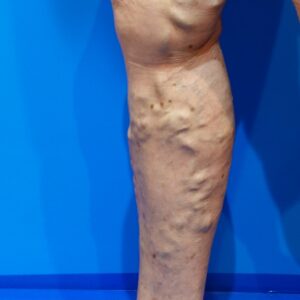Varicose Veins in the Legs: What Happens If Left Untreated?
Varicose veins in the legs refer to a condition where the veins become enlarged, causing blood to flow backward. Many people visit the hospital after noticing changes in their appearance, but this condition requires appropriate treatment, not just for cosmetic reasons. In this article, we will explain how varicose veins affect appearance and why treatment is necessary.
Appearance Changes Caused by Varicose Veins
Varicose veins are often not noticeable in the early stages, but as they progress, the following appearance changes may occur.
Blue, Swollen Veins
Blue lines and bulges may become prominent on the legs. These veins are particularly noticeable when standing or walking. 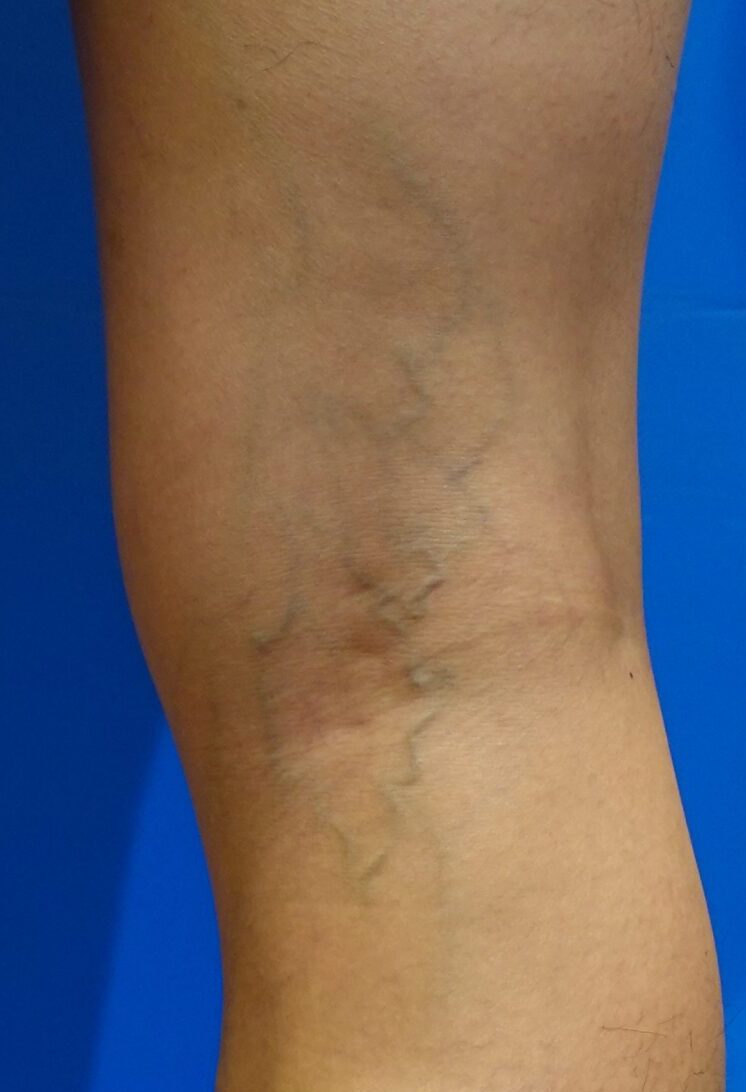
Over time, the varicose veins become larger.
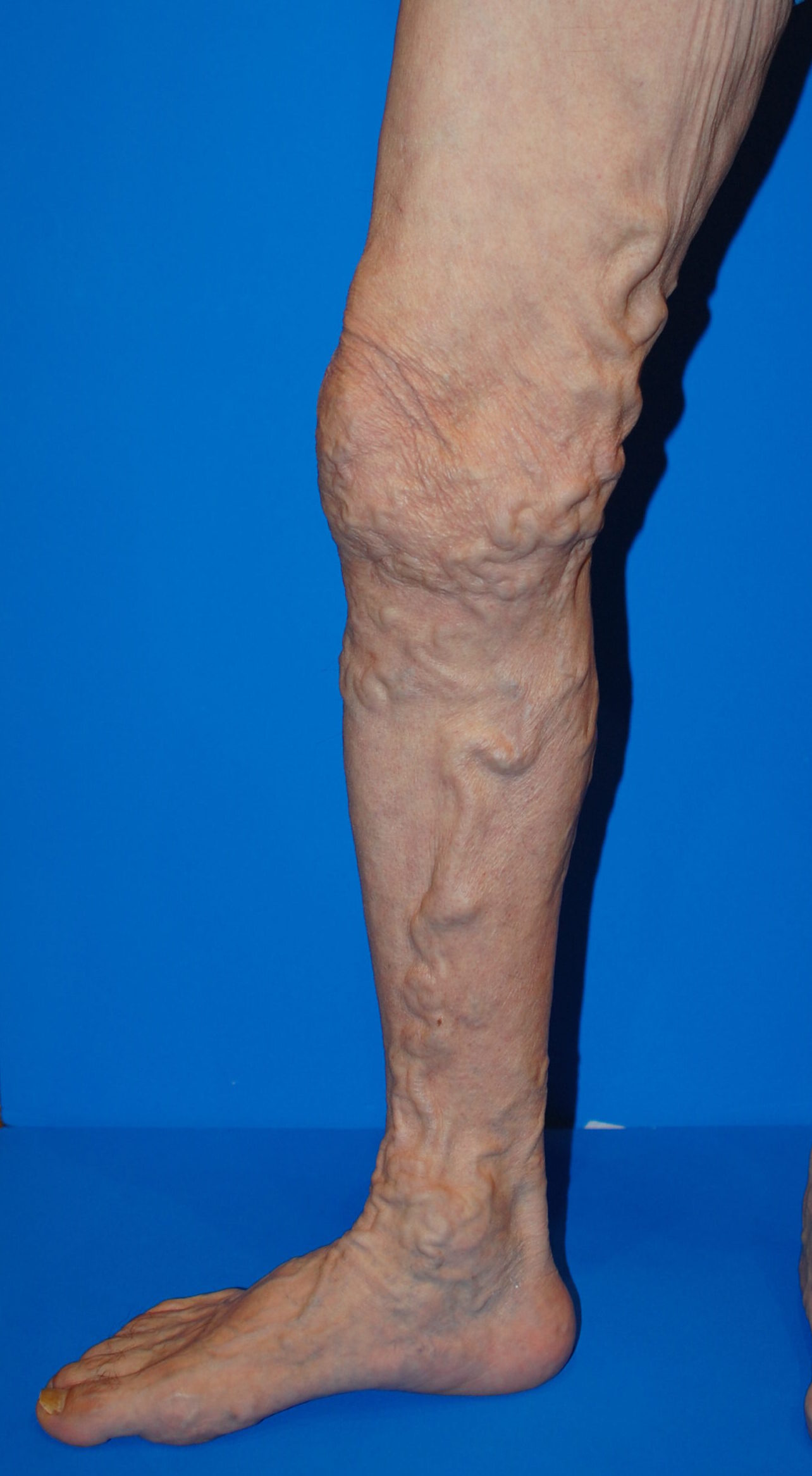
Leg Swelling
As varicose veins progress, leg swelling may occur. While mild swelling can improve with treatment, long-term swelling can be challenging to resolve, even after surgery, without the continued use of compression stockings. 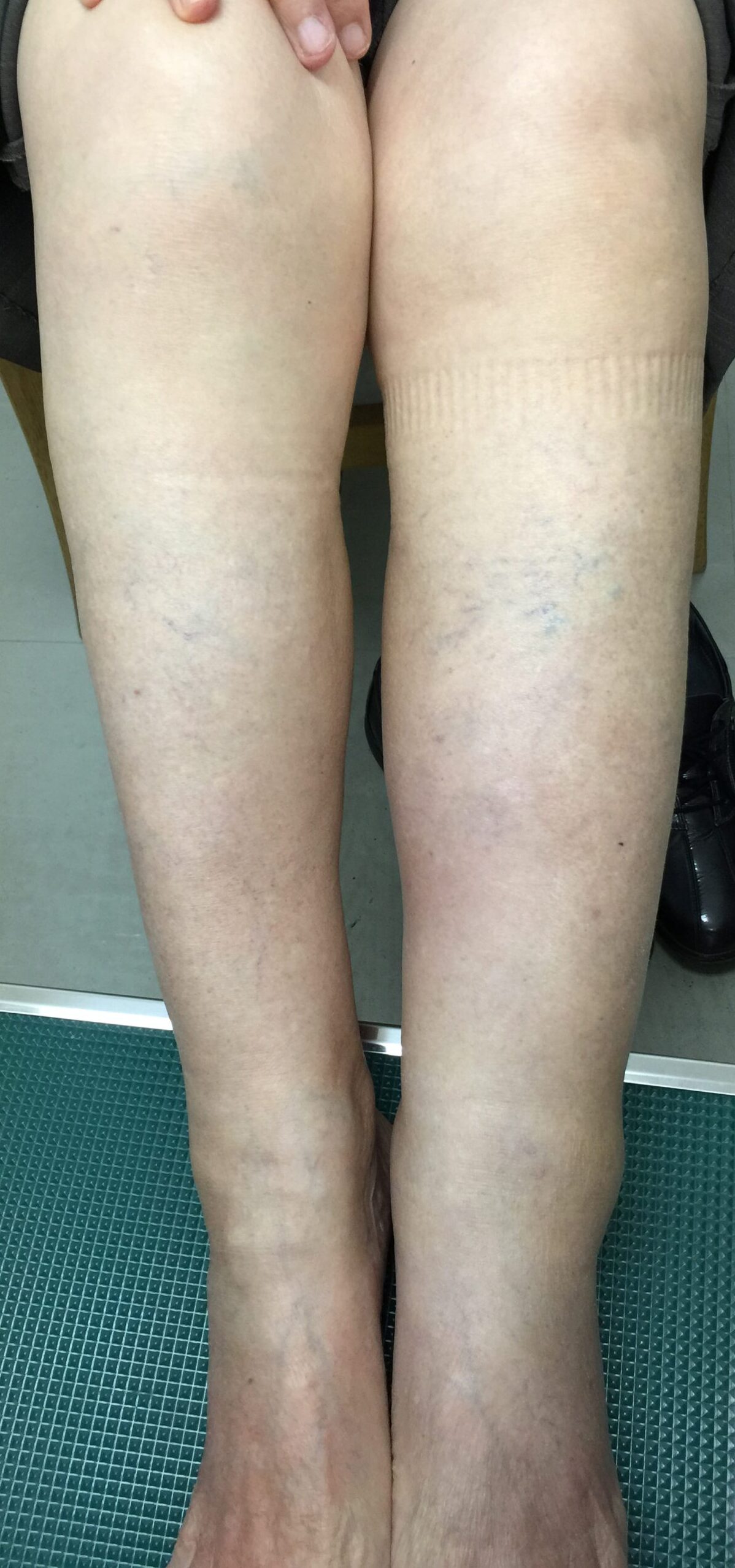
Skin Discoloration
The skin may turn brownish in color. Such discoloration, if left untreated, can lead to dermatitis or ulcers. 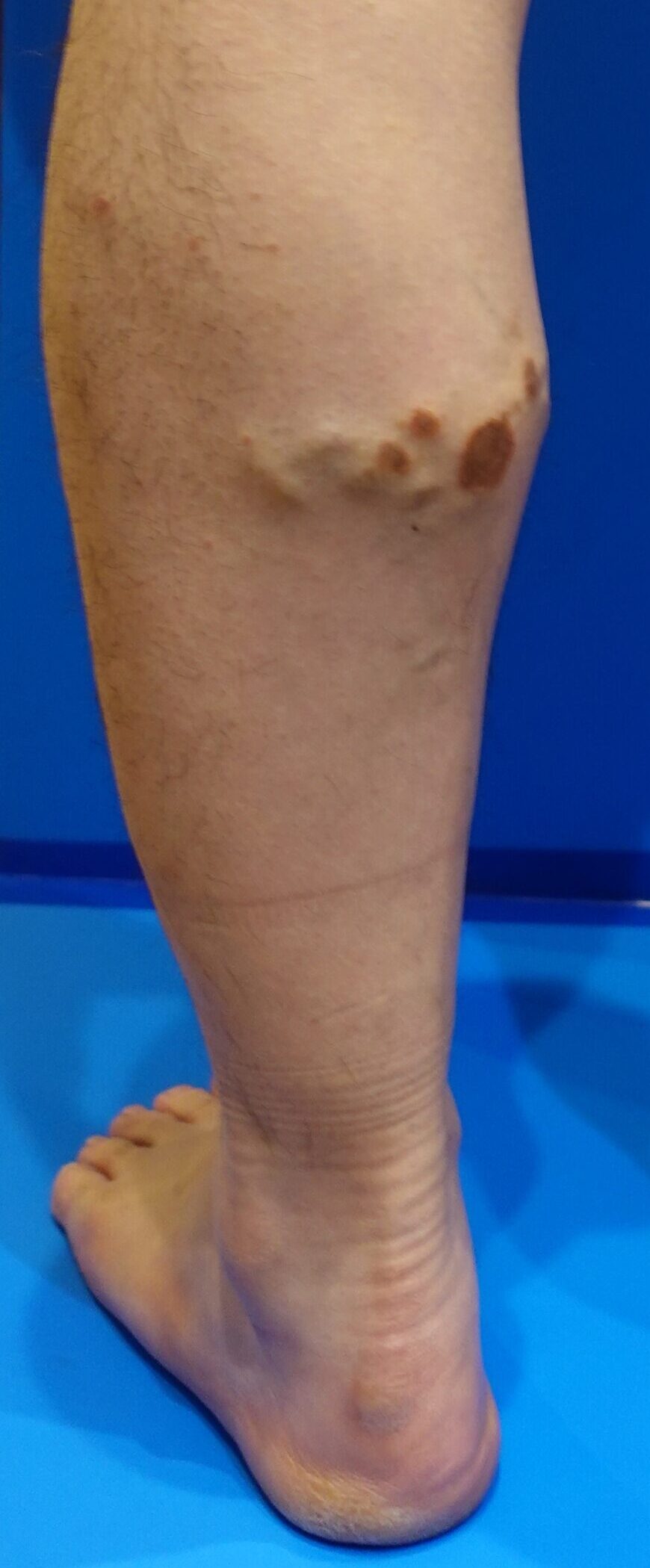
Eczema and Itching
If you struggle with persistent leg eczema and itching that does not improve with moisturizers or anti-itch creams, consider the possibility of varicose veins. 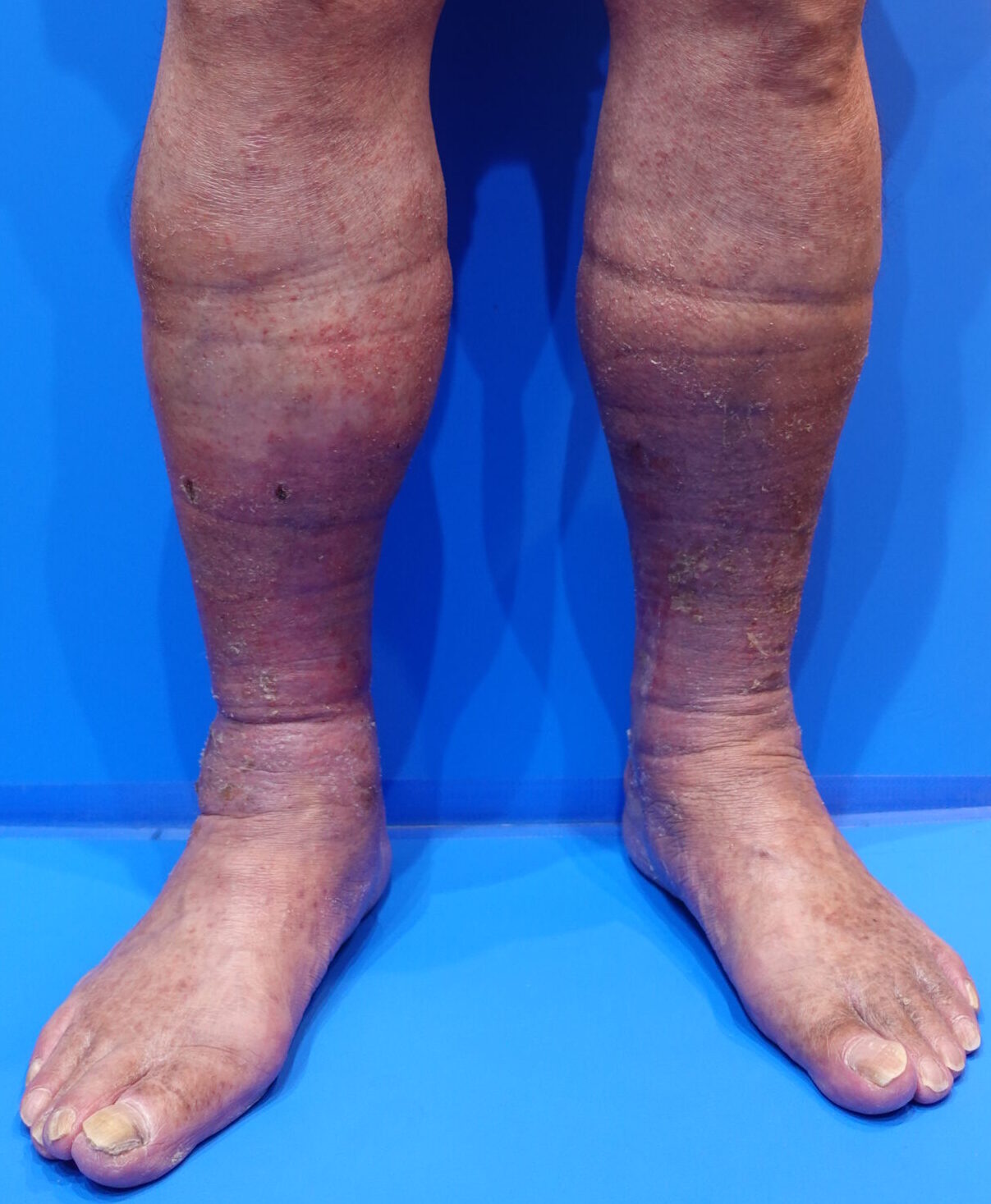
Lipodermatosclerosis
If the condition worsens, the skin on the legs can harden and become painful. 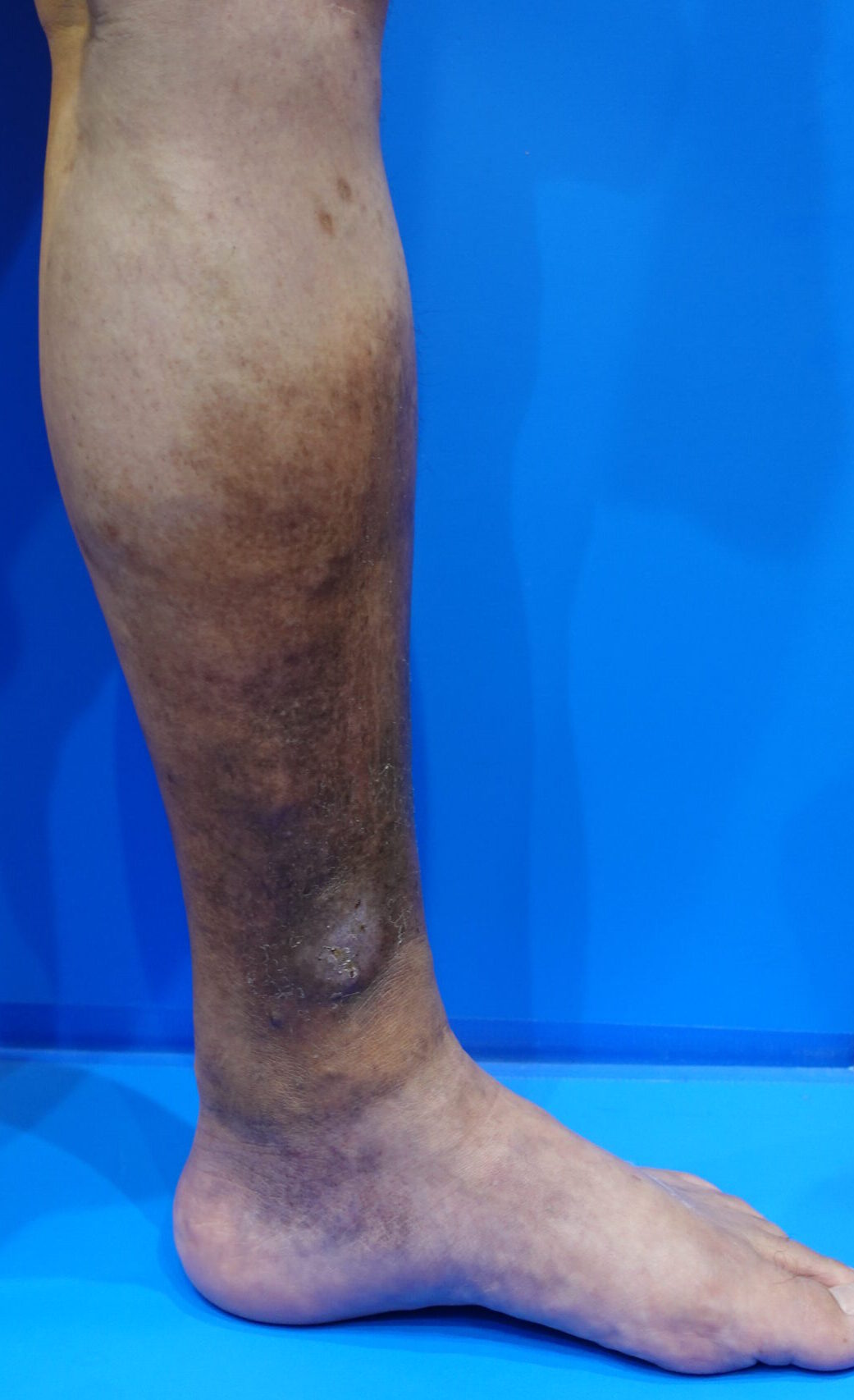
Not Just a Cosmetic Issue
Varicose veins are not only a cosmetic concern; if left untreated, they can cause the following symptoms and complications:
Pain and Heaviness: As varicose veins progress, you may experience a feeling of heaviness or pain in your legs, which can interfere with daily activities.
Dermatitis and Ulcers: Blood pooling in the veins can cause inflammation of the skin and, in some cases, lead to ulcer formation. These symptoms not only affect appearance but also increase the risk of infection.
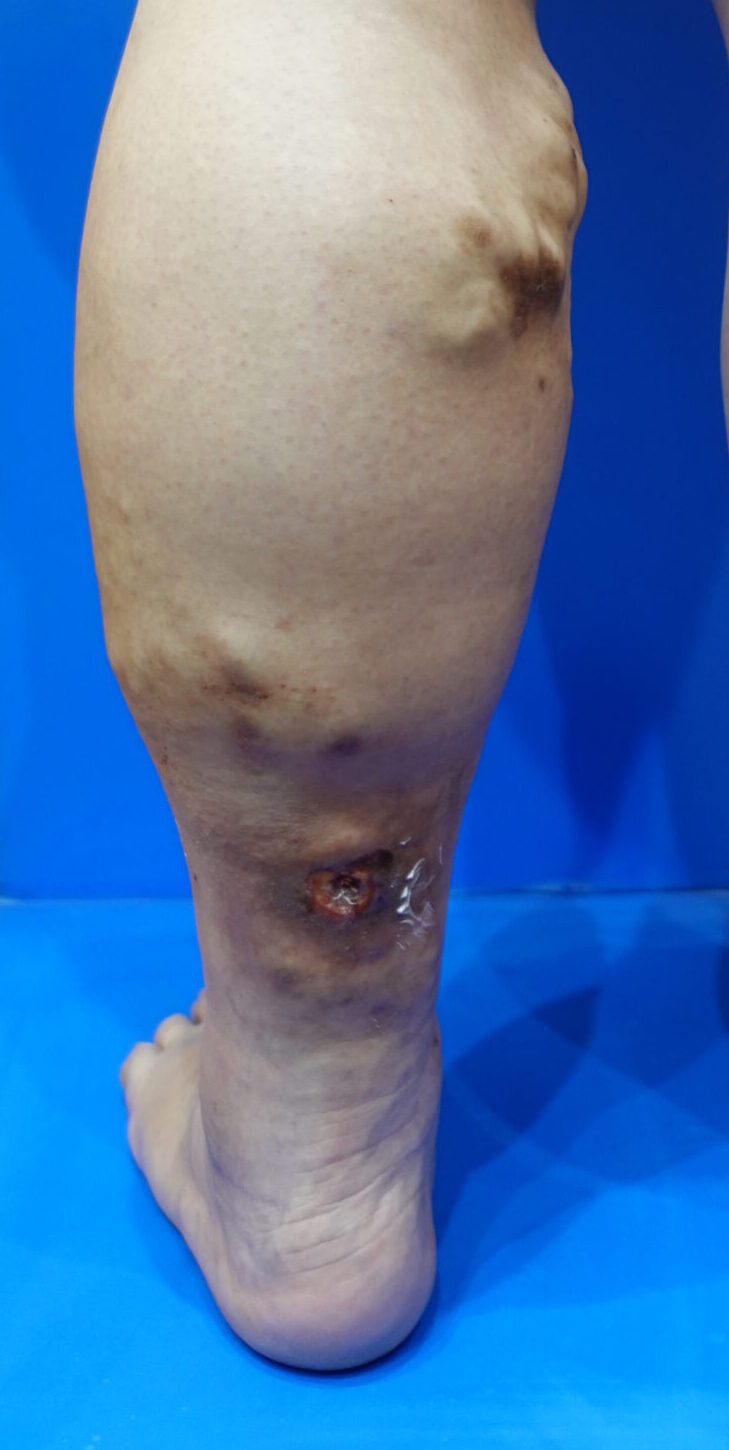
Treatment of Varicose Veins and Appearance Improvement
There are various treatments for varicose veins, including compression therapy, sclerotherapy, laser treatment, and glue treatment. These treatments are important not only for improving appearance but also for reducing health risks.
In recent years, treatments such as laser therapy and sclerotherapy, which leave minimal scars and allow for quick recovery, have become widespread, making it possible to undergo treatment without interfering with work or daily life.
Conclusion
Varicose veins in the legs not only significantly affect appearance but also pose a serious health risk if left untreated. Early detection and treatment are essential for both appearance and health. If you notice any of the abnormalities mentioned above in your legs, it is recommended that you consult a specialist.

